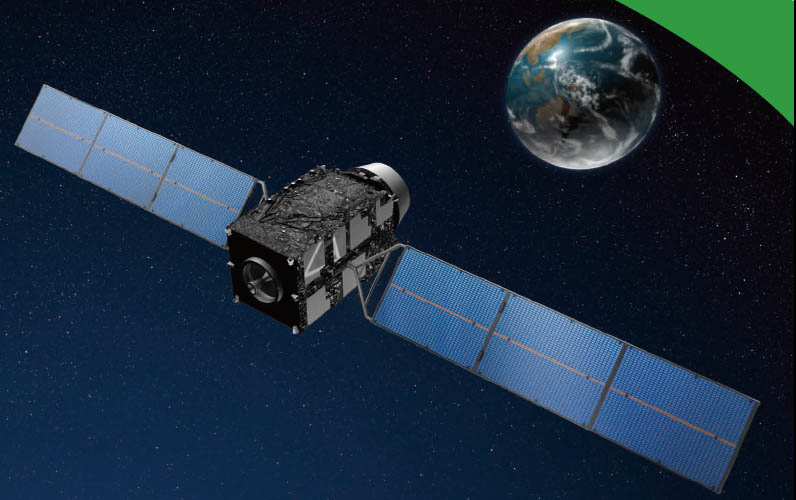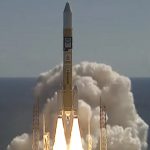 Michibiki launch control room during the first launch in 2010. (JAXA photo)
Michibiki launch control room during the first launch in 2010. (JAXA photo)Officials at the Tsukuba Space Center of the Japan Aerospace Exploration Agency (JAXA) announced that the second satellite in the Japanese Quasi-Zenith Satellite System (QZSS) is scheduled for launch in June.
Designed to boost the accuracy and reception of the existing GPS system for Japan, a new version of a satellite that will orbit directly over the Japanese archipelago was unveiled last week. It will improve the existing GPS and provide a better positioning reading for the people in Japan.
Officials at the Tsukuba Space Center of the Japan Aerospace Exploration Agency (JAXA) announced that the second satellite in the Japanese Quasi-Zenith Satellite System (QZSS) is scheduled for launch in June.
Designed to boost the accuracy and reception of the existing GPS system for Japan, a new version of a satellite that will orbit directly over the Japanese archipelago was unveiled last week. It will improve the existing GPS and provide a better positioning reading for the people in Japan.
JAXA will send aloft three of the Michibiki satellite series by the end of fiscal 2017, and is scheduled to start full operation in fiscal 2018, according to the Japanese newspaper The Asahi Shimbun. The Second and Fourth Michibiki will be of the same model.
Michibiki satellites oscillate from the northern to southern hemisphere to remain in the same longitude as the Japanese islands, and a key advantage is that reception of signals from them are less susceptible to tall buildings and other obstacles when using smartphones or other devices on the ground, according to The Asahi Shimbun.
With the use of a special signal receiver for Michibiki, users’ locations can be pinpointed with a high degree of accuracy to within a few centimeters.
The first Michibiki satellite was launched back in September 2010. Prior to that launch, JAXA selected a nickname for the satellite after a contest designed to raise national awareness of the GPS augmentation program. The space agency selected the nickname for its first GNSS satellite: “Michibiki” after receiving more than 11,000 entries. “Michibiki” means to guide or show the way.




